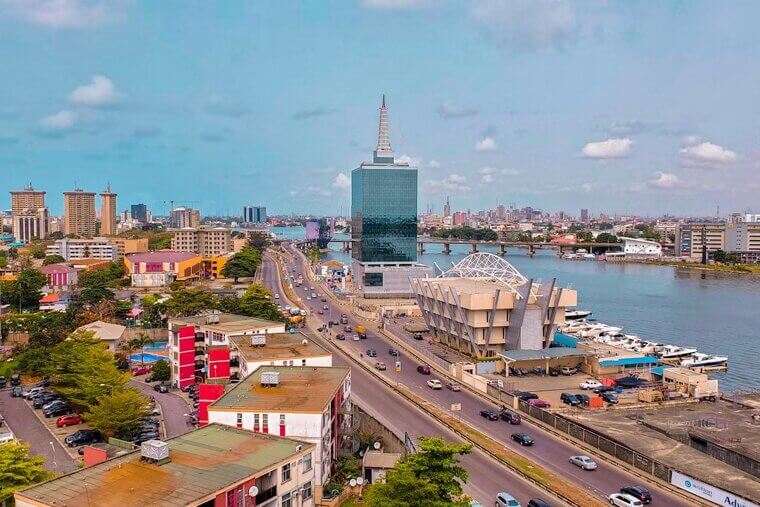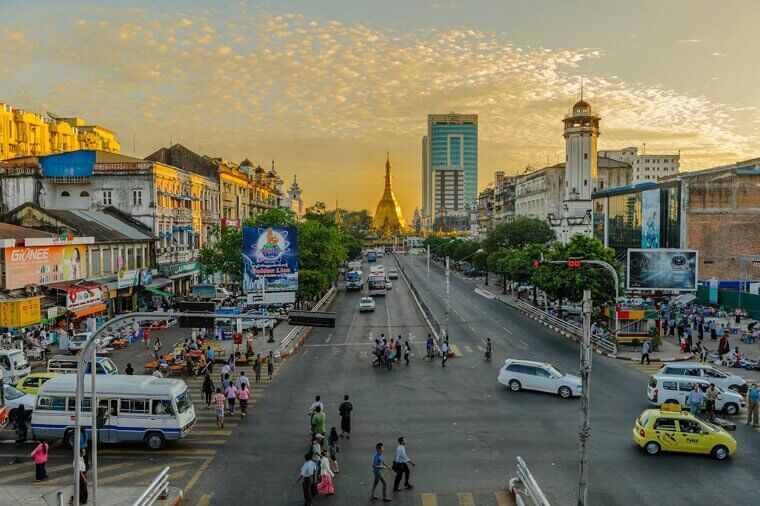Where Diabetes Is Spreading Fastest
If you’re diabetic, you’re not alone. Millions of people worldwide suffer from the condition, but you might be surprised to learn which countries have the highest rates of the illness. Using information from the website World Population Review, we’ve made a descending list of the countries in the world most affected by diabetes. Governments are doing all they can in most cases, but it’s a hard one to deal with.
China
China is doing very well on the world stage right now, and with that came a wave of lifestyle changes for the people of the country. Out went the old-school home-cooked meals and in came processed snacks and sugary drinks. Desk jobs and long hours didn’t help either. While healthcare’s getting better, prevention still isn’t quite there yet.
India
India’s seeing a perfect storm right now: an aging population, a lot of stress, and unhealthy diets built around white rice and fried food. On top of that, unfortunately the healthcare access varies wildly. Combine all those things and you’ve got one of the fastest-growing diabetes populations in the world.
Pakistan
Pakistan has lots of delicious food, as any local will tell you. But all those carbs and sugar are catching up with people. Pakistan’s facing a serious diabetes problem, and with limited healthcare and low awareness, many people don’t even know they have it until it’s a big issue.
United States
The United States has fast food on every corner and people glued to screens all day. That toxic combo has made diabetes a national issue. Sure, the healthcare’s there - if you can afford it, that is - but actual prevention often takes a back seat.
Indonesia
Indonesia has seen a huge shift in recent years. Traditional foods are getting pushed aside for sugary and unhealthy snacks. Add to that limited exercise, especially in urban areas, and diabetes is spreading fast. Rural communities also struggle with healthcare access, meaning early diagnosis and treatment are often out of reach for poorer people. It’s an issue.
Brazil
Brazil’s love affair with processed food is driving up diabetes cases. Traditional meals are getting replaced by quick and easy, but unhealthy, options as people’s working lives change. Many folks don’t have regular access to good medical care either.
Mexico
In Mexico, sugary sodas are part of daily life… and they’re fueling a diabetes crisis. Fast food and processed snacks are everywhere, making healthy eating a challenge for many. Even though the government’s trying to raise awareness, change is slow. Many people can’t access quality healthcare or don’t realize they’re at risk until it’s too late.
Bangladesh
More and more people in Bangladesh are now working desk jobs, grabbing fast food for lunch, and skipping the gym. The place is urbanizing fast, but healthcare access hasn’t caught up yet. That combo is sending diabetes rates higher every year.
Japan
Japan might be known for its healthy habits, but diabetes is creeping up - especially in older adults. A love for convenience store food and a drop in daily movement as more and more people take desk jobs aren’t helping the numbers. Still a very popular place to visit, though.
Egypt
White bread, sweet tea, and fried goodies are everyday staples in Egypt. Add to that low physical activity and poor healthcare access, and diabetes rates are climbing faster than expected. It’s a beautiful place, though, and home of the Great Pyramids.
Turkey
In Turkey, traditional dishes are often unhealthy, and modern living doesn’t always support healthy habits. Long commutes, office jobs, and high-calorie meals are common. Public awareness of diabetes is improving, but the condition is still a concern for the government.
Russia
Russia’s diabetes problem is wrapped up in its modern lifestyle - processed food, alcohol, and sedentary jobs are widespread. Add cold weather and long winters, and it’s no surprise people aren’t moving much. Healthcare access is decent in big cities, admittedly, but that hasn’t stopped the problem.
Germany
Germany actually has a great healthcare system, but lifestyle changes are driving diabetes numbers up. Processed food is more common, and physical activity isn’t what it used to be, especially among older adults. It’s probably one of the better countries to have diabetes in, but you still don’t want it.
Thailand
White rice, sweet drinks, and street food are daily staples in Thailand - and they’re causing blood sugar levels to climb. While traditional meals used to be the order of the day, fast food is becoming more and more popular. The shift to urban life also means less walking and more sitting.
Iran
Iran’s cities are seeing less movement and more and more sugar pouring in. Bread, rice, and sweetened tea are everyday items, but consistent exercise isn’t. And in rural areas, healthcare access is limited, which means diabetes often goes undetected until complications arise. Sometimes those complications can be life-threatening.
Spain
Spain’s famous Mediterranean diet is slipping away. More and more people are choosing fast food and spending time in front of screens instead of walking to get exercise. Diabetes is becoming more common – but the healthcare access is pretty good.
Italy
Italy’s still known for great food (mmm, pizza), but modern living is changing the eating habits of its people. Busy schedules mean more people are relying on processed and convenience foods. Combine that with less movement and an aging population, and diabetes is creeping into a country once hailed for how healthy it was.
Malaysia
Malaysia’s food is delicious – but unfortunately that means it contains lots of sugar and oil. Fast food is also on the rise, especially in cities. Even though many people are aware of diabetes risks, it’s hard to get people to exercise regularly and eat healthy food.
Philippines
The Philippines has seen a major shift in diet over the years, with processed snacks and sugary drinks suddenly everywhere. Traditional meals are being replaced with convenience food, and sedentary lifestyles are becoming more common. And healthcare access is uneven, which means many cases of diabetes are diagnosed late.
Saudi Arabia
Life in Saudi Arabia has changed fast. Outdoor activity has taken a hit thanks to climate change and car culture, fast food is big business, and sugary drinks are sold by the bucketload. The country has pretty good healthcare, but it’s focused more on treatment than prevention.
South Africa
South Africa is having a rough time diabetes-wise. Traditional diets are being swapped for processed foods, especially in urban areas, and that’s bad. Healthcare is available but often limited in rural regions. Diabetes is fast becoming a major concern.
United Kingdom
The UK has free healthcare, but sugary diets and sedentary habits are widespread now. From sugary cereals to takeaway meals, unhealthy food is really easy to find, and it’s contributing to childhood obesity which in turn contributes to the country’s growing diabetes problem.
Vietnam
Vietnam used to have healthy food, but diets are changing quickly. Traditional meals with vegetables and rice are being edged out by sugary drinks and processed snacks. Physical activity is down, especially in urban areas, and sitting down for work is up.
France
France still values good food, but modern bad habits are creeping in. Fast food is gaining popularity, and people are spending more time in cars and at desks. Sugary pastries and sodas are more common now, and diabetes is quietly becoming more of an issue.
Nigeria
Nigeria’s cities are growing fast, and so are fast food chains. Physical activity is dropping, and sugary snacks are easier to find than healthy ones. Access to healthcare is uneven, especially outside big cities, so diabetes often goes undiagnosed for years.
Sudan
Sudan is facing rising diabetes rates as sugary foods become more common and daily movement drops. The healthcare system is stretched very thin, and many people don’t get diagnosed until complications appear – complications that are often very serious. Education and access to care are key challenges here.
South Korea
South Korea’s work culture is intense, and stress is high. Long hours and a love for convenience food are driving up diabetes. Even with strong healthcare systems in the country, many people simply don’t prioritize prevention.
Colombia
Colombia is trading traditional meals for fried snacks and sugary sodas, and that’s not good at all. The urbanization of the place is changing how people eat and live, with less physical activity and more sitting. Healthcare is available in major cities but can be inconsistent in rural areas, another big issue.
Canada
Canada’s cold winters and fast-paced lifestyle is a recipe for inactivity among the population. Processed food is everywhere, and while the healthcare system is strong, many people still struggle to maintain healthy habits. Diabetes rates are rising slowly, but steadily.
Tanzania
In Tanzania, city life is bringing in more fast food and less walking. Healthcare is improving but not quite there yet, so many diabetes cases go unnoticed. And also, traditional diets are falling by the wayside as sugary drinks and processed snacks gain popularity
Myanmar
Myanmar’s food scene is changing quickly, with more people opting for sugary and processed options. Physical activity is dropping, and many communities lack basic healthcare services. That makes early diagnosis and treatment of diabetes a serious challenge.
Morocco
Unfortunately, a lot of the favorite foods in Morocco are really unhealthy ones. Furthermore, urbanization of the country has reduced physical activity as more people turn to cars, and healthcare access is uneven as well. Diabetes is rising steadily.
Ukraine
Ukraine faces a lot of challenges when it comes to health - processed foods, alcohol use, and low physical activity among them. The healthcare system has seen better days, especially during the current time of conflict. Diabetes is on the rise thanks to factors outside of the average citizen’s control, and it’s a real shame.
Venezuela
Venezuela’s ongoing economic crisis means more people are relying on cheap, unhealthy food. Stress and lack of access to medications make managing diabetes extremely difficult. And healthcare shortages are widespread, making prevention nearly impossible for many.
Algeria
Algeria’s diet is shifting fast. More people are eating fast food and moving less, especially in cities. Healthcare is available but early screening isn’t common, so many cases of diabetes aren’t caught until complications set in. Public health efforts are gaining ground… but slowly.




































